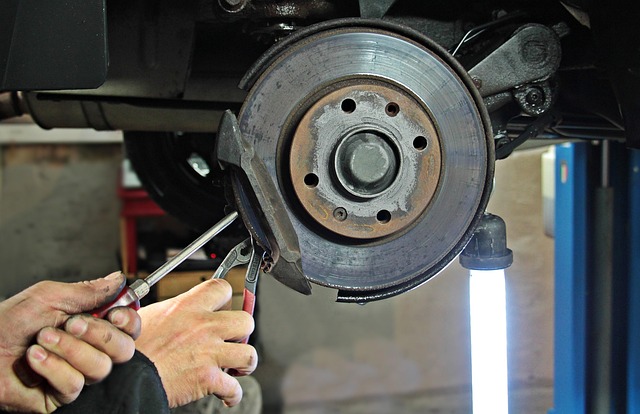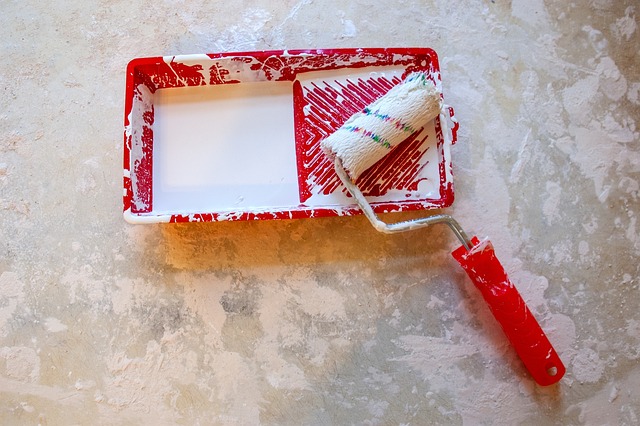Foundation Repair Specialists play a pivotal role in ensuring structural stability by addressing soil issues. They diagnose problems like poor compaction, high water tables, and expansive clays through soil testing and geotechnical investigations. Techniques such as deep foundation enhancement (stabilization and reinforcement) mitigate risks and extend building lifespans. Regular inspections and early intervention are key to cost-effective solutions. By leveraging advanced materials, bioengineering, and sustainable practices, Foundation Repair Specialists continually innovate to provide robust foundations, prevent costly repairs, and safeguard structural integrity.
Soil treatment is a critical component of ensuring structural stability, particularly for buildings with concrete foundations. This article delves into the intricate world of soil management for optimal foundation health, exploring key aspects like identifying soil issues and implementing effective treatment methods. We highlight the expertise of foundation repair specialists in diagnosing and mitigating soil-related challenges, drawing from real-world case studies. Additionally, we examine emerging trends, emphasizing best practices to safeguard against future foundation damage. Understanding these strategies is essential for both professionals and property owners alike, as it underscores the vital role of foundation repair specialists in maintaining structural integrity.
Understanding Soil Treatment for Structural Stability

Soil treatment is a crucial aspect of ensuring structural stability, especially for older or vulnerable buildings. It involves various techniques to improve the soil’s bearing capacity and reduce settlement issues. Foundation repair specialists employ these methods to mitigate risks and extend the lifespan of structures. By understanding the unique challenges posed by different soil types, professionals can tailor treatments like deep foundation enhancement, soil stabilization, and void filling to create a robust and secure base for buildings.
These processes often include mechanical or chemical means to compact loose soils, enhance strength, and prevent future settlement. Regular inspections and early intervention are key; identifying soil-related issues promptly allows for more effective and cost-efficient solutions. Foundation repair specialists play a vital role in navigating these complex challenges, ensuring the integrity of buildings and protecting investments in real estate.
Identifying Soil Issues Affecting Foundation Integrity

Soil issues can significantly impact a structure’s foundation integrity, making it crucial for foundation repair specialists to address these problems promptly. Common soil-related challenges include poor compaction, high water table levels, expansive clays, and unstable slopes. These conditions can lead to settlement, cracking, or misalignment of foundations, walls, and other structural elements.
Identifying the specific soil issues is an essential first step in any foundation repair project. Foundation repair specialists employ various techniques, such as soil testing and geotechnical investigations, to assess the soil’s properties and determine the root causes of instability. By understanding these factors, specialists can recommend and implement effective treatment methods tailored to the unique challenges presented by each site, ensuring long-term structural stability and preserving the integrity of buildings.
Common Soil Treatment Methods for Foundation Repair

Soil treatment is a crucial aspect of foundation repair, addressing issues like settlement, heave, and shifting. Common methods employed by foundation repair specialists include soil stabilization, which involves adding stabilizers like cement or polymers to modify soil properties. This technique strengthens the soil, preventing further movement and ensuring structural stability.
Another widely used method is soil reinforcement, where materials such as mesh, wire, or geogrids are introduced into the soil to enhance its bearing capacity. These reinforcement methods are particularly effective in areas with weak or unstable soils, providing long-term support for structures and effectively extending the lifespan of foundations, thus saving homeowners from costly repairs and ensuring safety for years to come.
The Role of Foundation Repair Specialists in Soil Treatment

When it comes to soil treatment for structural stability, Foundation Repair Specialists play a pivotal role in ensuring the long-term integrity of buildings and structures. These experts are equipped with the knowledge and skills to assess the condition of the soil, which is often the foundation of any construction project. They employ advanced techniques to evaluate factors like soil composition, moisture content, and compactness, all of which significantly impact the stability of a structure.
Foundation Repair Specialists not only identify potential issues but also recommend and implement effective treatment strategies. These may include soil stabilization techniques, such as improving drainage, adding structural supports, or utilizing specialized materials to enhance soil bearing capacity. Their expertise is invaluable in preventing costly repairs and ensuring that buildings are securely anchored to the ground, especially in areas prone to unstable soil conditions.
Case Studies: Successful Soil Treatment Projects

Soil treatment has proven to be a game-changer in many structural stability projects, showcasing its effectiveness through numerous successful case studies. These real-world applications demonstrate how specialized techniques can transform problematic soils into stable foundations for various structures. For instance, a recent project involved an old industrial site with severely contaminated soil, posing significant challenges for construction. By employing advanced soil treatment methods, including bioremediation and chemical stabilization, Foundation Repair Specialists successfully transformed the site into a robust foundation for a new eco-friendly building.
Another notable case study highlights the restoration of a historic city center. The area suffered from widespread settlement and cracking due to unstable clay-rich soils. A comprehensive approach combining soil reinforcement with deep stabilization techniques was implemented by experts. This project not only improved the structural integrity of the surrounding buildings but also preserved the city’s architectural heritage, highlighting the delicate balance between preservation and modern engineering solutions. These case studies illustrate the versatility and impact of soil treatment as a powerful tool in the arsenal of Foundation Repair Specialists.
Best Practices and Future Trends in Soil Treatment for Foundations

Soil treatment for foundations is an evolving field, with best practices continually being refined and new trends emerging. Foundation repair specialists play a vital role in this process, staying at the forefront of technology and innovation to ensure structural stability. One prominent trend is the increased use of advanced materials like geogrids and polymer-based products, which enhance soil strength and improve load-bearing capacity. These materials are particularly useful in weak or unstable soils, offering cost-effective solutions for foundation repair and stabilization.
Moreover, future trends in soil treatment look towards more sustainable and environmentally friendly practices. This includes the integration of bioengineering techniques, such as using plant roots to stabilize soils, and the development of biodegradable materials. As awareness of ecological impact grows, foundation repair specialists are expected to adopt these innovative solutions, combining effectiveness with minimal environmental disruption.
